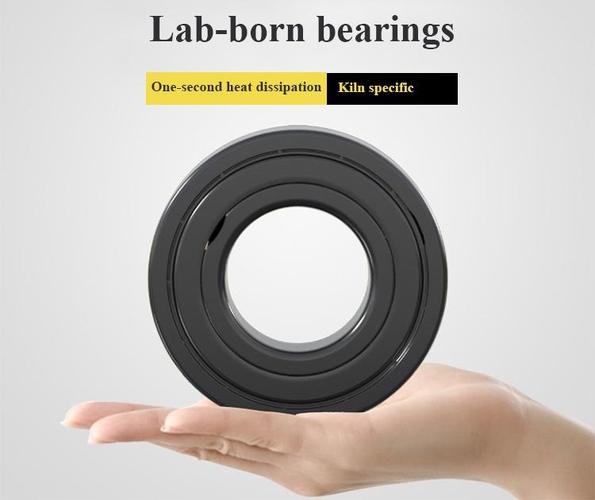Top 5 Factors to Consider When Choosing a Precision Bearings Distributor
Precision bearings distributors play a critical role in industrial operations by providing components that ensure minimal friction and maximum accuracy in machinery. Selecting the right distributor impacts product longevity, operational efficiency, and maintenance costs across aerospace, automotive, and manufacturing sectors.
1. high precision bearings suppliers2. precision ball bearings manufacturers
3. industrial precision bearings distributors
4. precision bearings for machinery
5. how to choose precision bearing distributors
1. high precision bearings suppliers

High precision bearings suppliers must meet stringent quality standards like ISO 9001 and ABMA specifications. These components require tolerances within 0.0001 inches to handle extreme loads in robotics or medical equipment. Leading suppliers offer materials like ceramic hybrids for corrosion resistance and hybrid lubrication systems. Evaluate their testing protocols—advanced providers use coordinate measuring machines (CMM) and spectral analysis. For example, NSK’s EZO bearings undergo 100% dimensional verification. Consider regional hubs: European suppliers excel in aerospace-grade bearings, while Asian manufacturers dominate cost-effective solutions for consumer electronics. Always verify lead times—critical for JIT manufacturing environments requiring ABEC-7 or higher certifications.
2. precision ball bearings manufacturers
Precision ball bearings manufacturers focus on minimizing rotational friction through superior raceway geometry. Top-tier producers like SKF and Timken employ vacuum-degassed steel to enhance durability. Key innovations include sealed bearings with PTFE coatings for food processing machinery and angular contact designs for CNC spindles. Manufacturers must provide detailed load capacity charts—dynamic load ratings above 10kN are essential for wind turbine applications. Customization services matter: some vendors offer laser-etched part numbers for traceability. Environmental compliance is crucial—REACH and RoHS certifications ensure adherence to global regulations. Always compare warranty terms—reputable manufacturers offer 2-5 years coverage with failure analysis reports.
3. industrial precision bearings distributors
Industrial precision bearings distributors specialize in bulk procurement for heavy machinery sectors. They stock tapered roller bearings for mining equipment and slewing rings for crane operations. Verify their inventory management systems—real-time stock updates prevent project delays. Distributors should provide CAD models and cross-reference databases for legacy machinery replacements. Thermal stability is key: look for distributors offering bearings with stabilized operating ranges from -40°C to 150°C. Partnerships with logistics firms ensure proper handling—anti-static packaging and climate-controlled transport prevent contamination. Case studies matter: check if they’ve supplied bearings for high-vibration environments like stamping presses or railway bogies. Request sample certifications for materials like M50 tool steel or silicon nitride.
4. precision bearings for machinery
Precision bearings for machinery require application-specific engineering. Machine tool spindles demand P4/P2 accuracy classes with preload adjustments to eliminate axial play. Agricultural machinery needs sealed bearings with IP69K ratings against dust and pressure washing. For high-speed packaging lines, consider hybrid bearings with silicon nitride balls reducing centrifugal forces. Lubrication compatibility is vital—food-grade NSF H1 grease differs from high-temperature synthetic oils for metal forging. Vibration analysis reports from distributors help predict bearing lifespan—FFT spectrum analysis should show amplitudes below 0.5 mm/s. Always verify mounting compatibility—improper fits cause 34% of premature failures according to ASTM studies.
5. how to choose precision bearing distributors
Choosing precision bearing distributors involves technical audits and supply chain evaluations. Prioritize distributors with ISO 17025-accredited testing labs. Check their digital tools—AI-powered catalog selectors reduce specification errors by 72%. Assess financial stability—Dun & Bradstreet ratings above 3A indicate reliable partners. Multi-lingual support teams are essential for global projects. Review their value-added services: some distributors provide installation torque calculators and vibration monitoring sensors. Always conduct factory audits—verify cleanroom assembly areas and automated inspection systems. Negotiate consignment stock agreements for high-volume users. Finally, compare INCOTERMS—CIP deliveries include insurance, while EXW requires self-handling logistics.
Selecting the optimal precision bearings distributor requires balancing technical expertise, certification compliance, and logistical capabilities. From evaluating ABEC ratings to verifying anti-counterfeit measures, each factor directly impacts your operational efficiency. This guide covered critical aspects like material science innovations, application-specific engineering, and supplier risk management strategies. Whether you're upgrading CNC machinery or sourcing bearings for renewable energy systems, these insights will help you establish partnerships that enhance productivity while reducing total cost of ownership.




 13869596835
13869596835